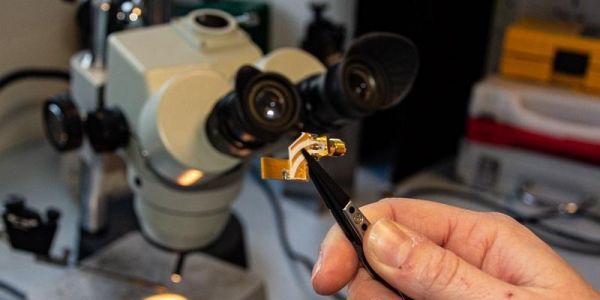
A laser that can route light around corners
Scientists and engineers have created the first electrically-driven ‘topological’ laser, which has the ability to route light particles around corners.

Scientists and engineers have created the first electrically-driven ‘topological’ laser, which has the ability to route light particles around corners.

With National Student Volunteering Week 2020 underway this week, the University is celebrating the impact student volunteers have on local, national and international communities.

Researchers have made a breakthrough in the control of terahertz quantum cascade lasers, which could lead to the transmission of data at the rate of 100 gigabits per second.

The University of Leeds has once again been recognised as one of the world's most international universities.

The University has exchanged an agreement to purchase Cloth Hall Court from Leeds Beckett University.

A project researching the latest autonomous vehicle technologies has successfully completed a 230-mile self-navigated journey on UK roads.

As National Apprenticeship Week 2020 kicks off, the University of Leeds is celebrating the success of its partnerships and those studying on its programmes.

Patients in GP surgeries across West Yorkshire are being invited to take part in a large trial of low-dose amitriptyline for irritable bowel syndrome (IBS).

A new £8 million research centre exploring how technology is changing the world of work will officially launch this week.

Leeds and the City Region takes its place on the international stage this January, with visitors from across the world seeing first-hand how Leeds inspires innovation.